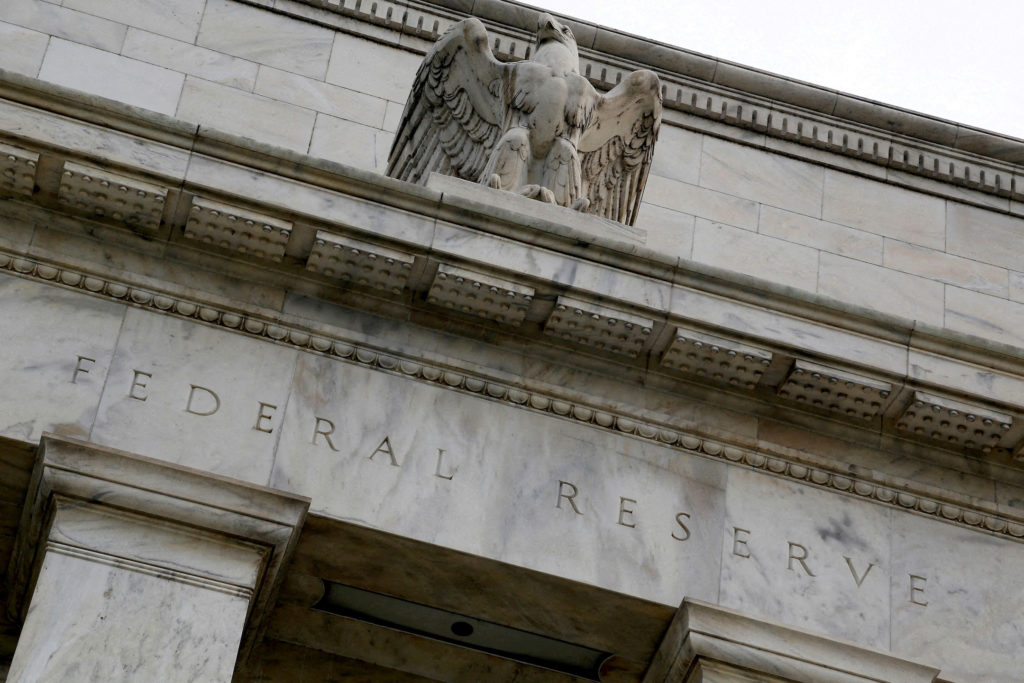A version of this story initially appeared in CNN Business’ Before the Bell newsletter. Not subscribed? You can sign up right here. You can also listen to an audio version of the newsletter by clicking the same link.
Investors found Wednesday’s Federal Reserve policy decision to be rather uneventful as officials opted to keep interest rates unchanged, a stance maintained since July 2023.
However, there’s another pivotal decision catching the attention of savvy traders. The Fed announced a significant reduction in its quantitative tightening (QT) program, which involves selling off assets to decrease money supply and raise interest rates, starting in June.
Following this announcement, US Treasury yields experienced a decline. Yields on both the 10-year and 2-year bonds dropped by .05 percentage points.
Here’s what’s going on: Between 2020 and 2022, the Fed purchased a substantial amount of government-backed bonds to bolster economic recovery post-pandemic recession. These purchases led to lower interest rates in specific sectors like housing and auto sales.
However, as inflation surged in mid-2022, the Fed began unwinding these bond purchases.
Currently, the Fed allows up to $60 billion in Treasuries to mature each month without replacement, effectively reducing the circulating money supply. The aim is to apply downward pressure on prices.
Yet, there are downsides to this strategy. Altering liquidity levels in the economy and reallocating funds could have significant repercussions.
As highlighted by JPMorgan Chase CEO Jamie Dimon in his annual shareholder letter, the scale of quantitative tightening (QT) has never been fully experienced before. The current pace drains over $900 billion in liquidity annually, prompting concerns.
QT reduces bank system liquidity, leading to higher interest rates and tighter monetary conditions. However, during the last QT implementation in 2019, some banks faced significant reserve shortages, resulting in a “repo crisis” where overnight loan interest rates between banks spiked. The Fed intervened to stabilize rates.
Fed Chair Jerome Powell aims to avoid a repeat of the 2019 scenario and indicated a scaling back of QT during his recent press conference.
On Wednesday, officials announced a reduction in the rate of QT to $25 billion, more than halving its current level.
What does this mean? According to Evercore ISI’s Krishna Guha and Marco Casiraghi, May 1 is poised to be significant in the bond market. A taper of the QT program is likely to be perceived as bullish for riskier investments like stocks and bonds, Bill Adams, chief economist for Comerica Bank, noted. This anticipation is because a taper should push bond prices higher and interest rates lower.
Justice Dept plans to reschedule marijuana as a lower-risk drug
The Biden administration is moving to reclassify marijuana as a lower-risk substance, a person familiar with the plans told CNN. This historic decision acknowledges the medical benefits of the long-criminalized drug and carries broad implications for cannabis-related research and the industry.
The US Department of Justice proposed rescheduling marijuana from Schedule I to Schedule III, a classification shared by prescription drugs such as ketamine and Tylenol with codeine.
“Today, [Attorney General Merrick Garland] circulated a proposal to reclassify marijuana from Schedule I to Schedule III,” said Xochitl Hinojosa, the DOJ’s director of public affairs. “Once published by the Federal Register, it will initiate a formal rulemaking process as prescribed by Congress in the Controlled Substances Act.”
The formal rulemaking process typically includes a public comment period and could take months to complete.
Lawmakers on both sides of the aisle, including Republican Rep. Nancy Mace of South Carolina and Democrat Rep. Earl Blumenauer of Oregon, have hailed the rescheduling recommendation.
Read more here.
Binance founder is sentenced to 4 months in prison on money-laundering charges
Changpeng Zhao, the founder of the world’s leading cryptocurrency exchange, received a four-month prison sentence after pleading guilty to money-laundering charges last year. The sentence, handed down in a US federal court in Seattle, is lighter than the three years prosecutors had sought.
Ahead of the sentencing, Zhao, also known as CZ, apologized for his mistakes as Binance CEO and vowed that they would not be repeated.
“Words cannot explain how deeply I regret my choices that result in me being before the Court,” he said in a letter to the judge. “Rest assured that it will never happen again.”
Binance had agreed to pay over $4 billion in fines and other penalties as part of a settlement with the federal government. The company admitted to engaging in anti-money laundering activities, unlicensed money transmitting, and sanctions violations.
Zhao, aged 47 with a personal fortune of nearly $40 billion, according to Bloomberg, agreed to step down as CEO and pay $200 million in fines.















































